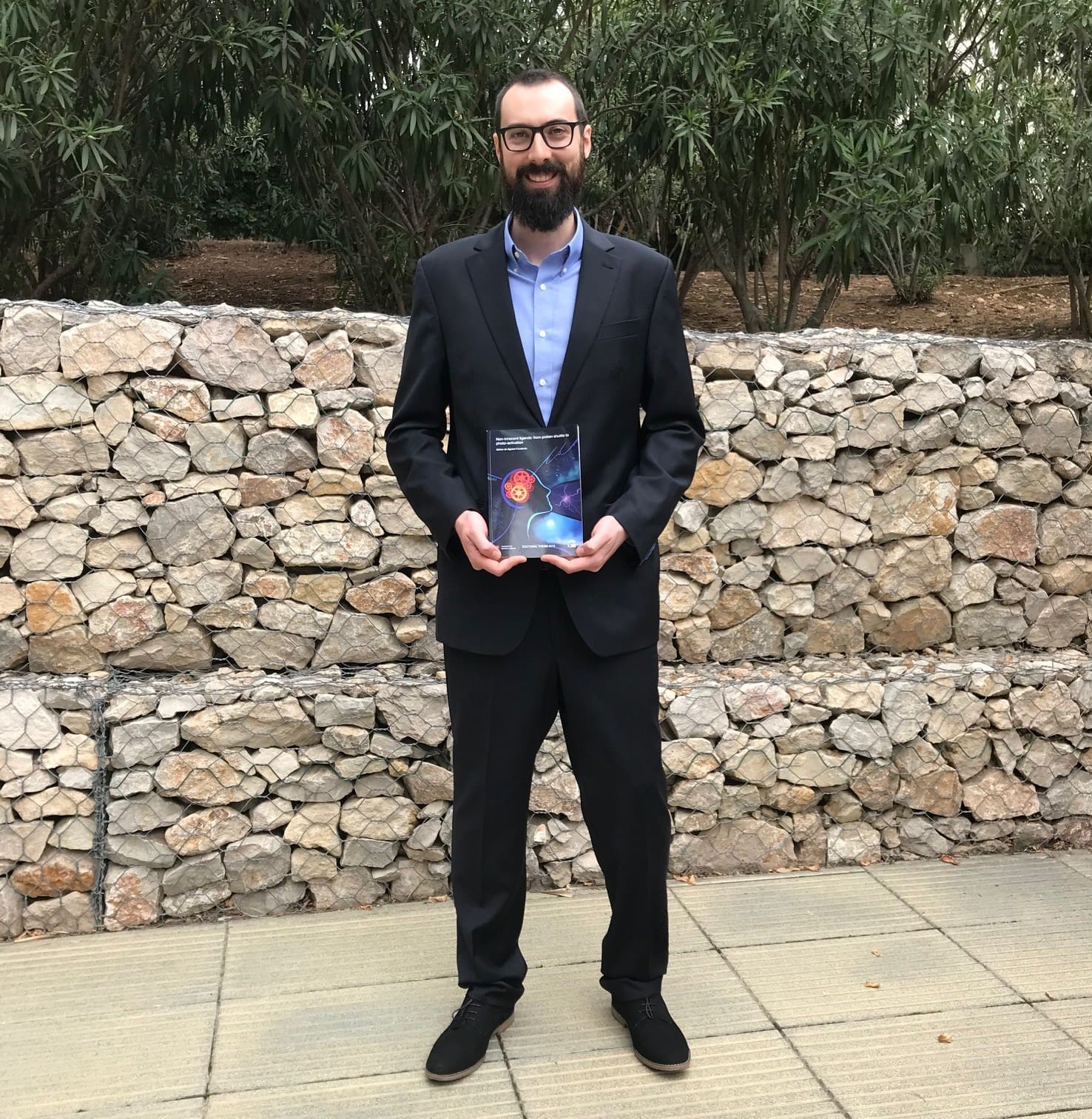New doctor at ICIQ: Dr. de Aguirre
Adiran de Aguirre Fondevila, PhD student under the supervision of Prof. Feliu Maseras (ICIQ), has defended his PhD Thesis entitled “Non-Innocent Ligands: from Proton Shuttle to Photo-Activation” (assigned to the Department of Inorganic & Physical Chemistry of the Universitat Rovira i Virgili) publicly on October 21st at the ICIQ Auditorium.
The members of the examining committee were: Prof. Eric Clot (Montpellier University), Dr. Ainara Nova (Oslo University) and Dr. Javier López (Universitat Rovira i Virgili).

Adiran de Aguirre Fondevila with the members of the evaluation committee and his supervisor Prof. Feliu Maseras.
Dr. de Aguirre is from Vila-Seca and studied Chemistry at URV during which he already did an internship in Prof. Maseras group. He later did the ICIQ-URV Master on Synthesis, Catalysis and Molecular Design before joining Maseras group once again for his PhD. He is happy with his time at ICIQ and the many friends he’s made at the institute. When he needs a break from work, he joins many ICIQers at a bouldering centre – an activity that demands to be focused on the present time.
Why did you become a scientist? What would you want to achieve as a scientist?
Since I was a kid, I wanted to know how things work. At school, everyone is divided between sciences and humanities and I always leaned towards the sciences. On top, I have a very bad memory, so to remember some concepts I need to know how it works. I’d like to do science that has a real impact on every-day life, ideally, you’d be able to see it just by walking on the street. Like electric cars or new technologies where computational chemistry can give a big impulse to push things forward.
From the lessons learnt at ICIQ, which one do you value the most?
Feliu, my supervisor, has taught me to approach a problem in a smart way and to be patient when things go wrong. Doing a PhD can feel like being on a rollercoaster sometimes, but you need to learn to be ok whatever the circumstances.
What ICIQ moment you´ll never forget?
On my first day at ICIQ, almost as soon as I arrived, they made me check a website to learn how to regulate my desk chair. There’re many different options and settings and having ergonomic equipment is important when you spend your day sitting!
What advice do you have for students who are starting their PhD now?
Remember that doing a PhD is both work and a continuation of your training. Some people forget to have a good work-life balance and spend too much time in the lab or computer room. In the end, it doesn’t matter how many hours you spent doing something, but the quality of the time you spent – and the quality of the results, obviously. I think we should find incentives for people to work smart and learn to rest – work-life balance is very important!
If you were a lab instrument which would you be?
A computer chair, for obvious reasons!
Where are you going next?
I don’t know yet, but I’m looking for postdoc positions around Europe to work on catalysis. So far, I’ve done homogeneous catalysis, but I wouldn’t mind shifting to heterogeneous – which is widely used in industry and therefore has a bigger chance of having an impact.
Related news

Let's create a brighter future
Join our team to work with renowned researchers, tackle groundbreaking
projects and contribute to meaningful scientific advancements







 20-12-2024
20-12-2024 


















